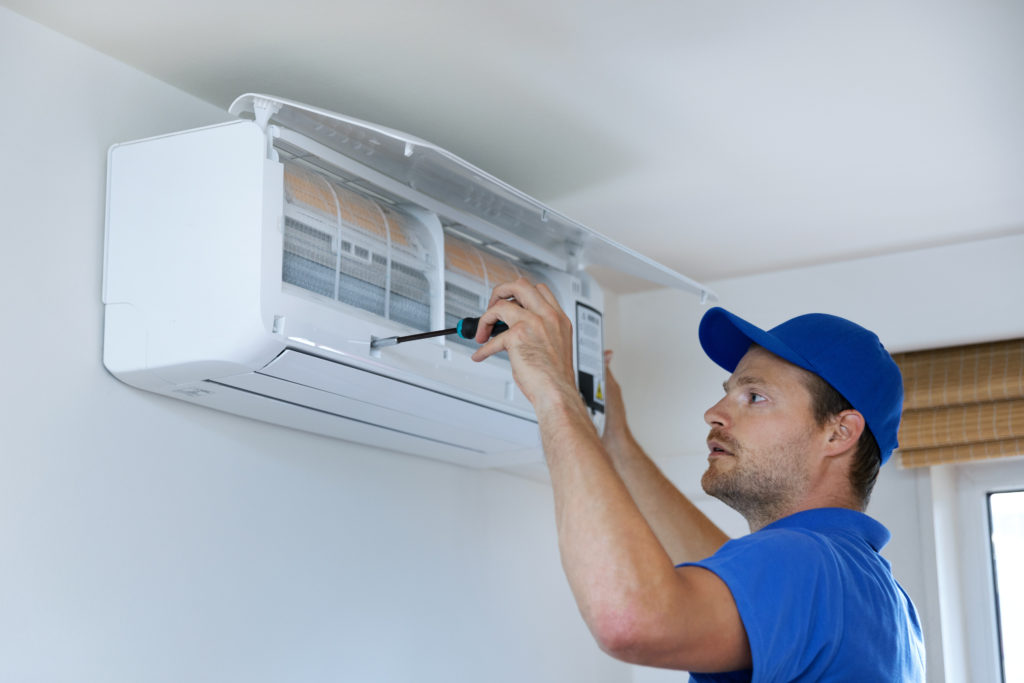Every homeowner wants to have the best equipment installed in their home, especially if it deals with comfortability. Choosing the best heating, ventilation, and cooling system (HVAC) is a serious task, and the various options you might have can be quite overwhelming. There are many factors to consider in choosing the right HVAC system for your household.
This guide will take you through all the information you might need in choosing the right HVAC system for your home.
- Check The Ratings
When shopping for an HVAC system, it’s crucial to check the ratings of the HVAC system. These ratings are as follows:
Average Fuel Utilization Efficiency (AFUE)
AFUE refers to the standard measurement of the efficiencies of gas and oil-fired furnaces. The right HVAC system for your home should have an AFUE rating of between 78% to 98.5% to offer the best in terms of efficiency.
Heating Seasonal Efficiency Ratio (HSPF)
HSPF refers to a rating used in measuring the efficiency of air conditioners and heat pumps. Higher HSPF is an indication of more efficiency since the pump consumes less energy. A good HVAC system has to have an HSPF rating of around 7.7 to 13.
Seasonal Energy Efficiency Ratio (SEER)
SEER refers to a rating used in measuring the efficiency of heat pumps and air conditioners. Brands that have higher efficiencies have ratings of 30+. A good HVAC system that’s eco-friendly has to have a SEER rating of between 14 to 30. HVAC systems that are Energy star-rated have ratings not less than 14.
- Contractor
Getting skilled contractors such as CW Service Pros would ensure that your HVAC system is installed properly, with the correct procedures and equipment. Poor installation or incompatible HVAC sizes is known to cause wastage of energy.
Hiring a qualified contractor would ensure that your HVAC system is maintained regularly and correctly. They’d also help you calculate the right HVAC size for your home to ensure that the system serves efficiently in the heating and cooling of your home.
A good contractor evaluates your system, asks questions to know your specific needs, then gives you the recommendations that can best serve your household. Companies such as Asap Air and others are known to offer quality HVAC systems, as well as good services when it comes to installation and repairs.
- Total Costs
You also need to consider the initial purchasing cost and the long-term costs. Your HVAC system, being a long-term investment, can have impacts on the overall costs if factors such as maintenance costs, utility costs, installation costs, and the suggested appliance lifespan aren’t considered.
High-efficiency systems can have more initial costs but can help you save on energy costs over time. A good HVAC system has to offer comfortable temperatures in your home. Going for an expensive HVAC system would mean that you’ve selected a system with high quality and is efficient and durable. For efficient and eco-friendly systems, selecting ducted systems would be a good but costly choice.

- Load Calculation
Load calculation helps determine the correct size of A/C your household would require. This is achieved by matching your household’s thermal characteristics with the cooling capacity. This calculation takes into consideration the climate zone, home size, number of appliances, roof material, directional orientation, and other appropriate information.
- A/C Size
It’s important to choose the correct HVAC size for your home. Several problems are bound to occur if a unit has the wrong size for your home’s square footage. If the HVAC unit is too small, it can’t properly perform its cooling characteristics. On the other hand, if the HVAC unit is too big, it’d end up wasting a lot of energy due to its frequent on and off cycling.
- Sound
An HVAC system can be noisy depending on its type and the area it has been installed. A good HVAC system shouldn’t produce unnecessary disturbances in your homestead. Consulting the manufacturer and your installer can help you make your decision on the system you prefer best in terms of noise tolerance levels.
A good HVAC system from your home should have a noise level measure of under 60 decibels (dB).
- Modern Thermostat Compatibility
The HVAC system should be compatible with modern programmable thermostats, which allow you full control of your system from anywhere. Moreover, it allows you to save on energy bills by turning your HVAC systems off when not in use, which also increases the lifespan of your system.
In recent times, HVAC systems have smart features that allow for their control through smartphones. You can control other units to other parts of the house through wires.
Takeaway
Installing an HVAC system is essential for your home. However, the task of choosing the best for your home can be quite hectic. The outline above can help you in selecting the perfect HVAC system for your household.






